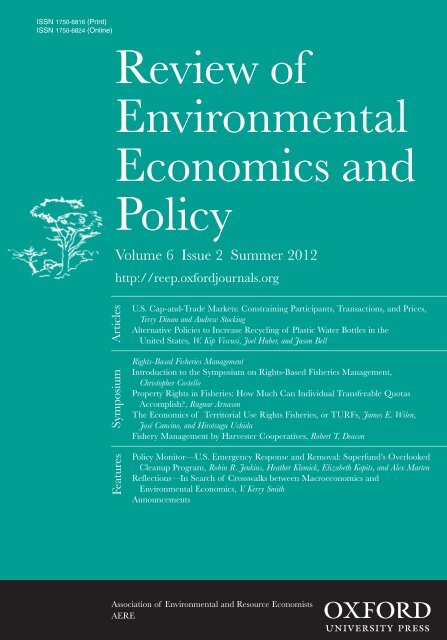The Role of Stated Preference Valuation Methods in Understanding Choices and Informing Policy
IF 6.6
3区 经济学
Q1 ECONOMICS
引用次数: 55
Abstract
This article examines the role of stated preference (SP) valuation methods in the environmental economist’s toolbox. Overall, the article makes the case for using SP methods in a wide range of settings, showing how the approach can be used to both inform policy and gain a better understanding of people’s choices and preferences. First, we provide an overview of SP methods and discuss a number of policy design issues where we believe SP methods have advantages over alternative approaches. The ability of SP to overcome “hypothetical market bias” is briefly reviewed. Next, we discuss how SP methods can be used to address research issues concerning people’s preferences and choices, which have broader implications for economics and behavioral sciences. These research issues are (1) the effects of information, learning and knowledge; (2) testing the validity of the standard model of consumer choice; (3) the influence of behavioral drivers such as social norms; and (4) the role of “deep” determinants of preference heterogeneity such as emotions and personality. Finally, we identify some research areas where SP methods may be particularly useful in the future.陈述偏好评估方法在理解选择和告知政策中的作用
本文考察了环境经济学家工具箱中陈述偏好(SP)评估方法的作用。总体而言,本文说明了在广泛的环境中使用SP方法的情况,展示了如何使用该方法来通知政策并更好地了解人们的选择和偏好。首先,我们概述了SP方法,并讨论了一些策略设计问题,我们认为SP方法比其他方法具有优势。简要回顾了标准普尔克服“假设市场偏差”的能力。接下来,我们将讨论如何使用SP方法来解决有关人们偏好和选择的研究问题,这对经济学和行为科学具有更广泛的影响。这些研究问题是:(1)信息、学习和知识的影响;(2)检验消费者选择标准模型的有效性;(3)社会规范等行为驱动因素的影响;(4)影响偏好异质性的“深层”因素,如情绪和个性。最后,我们确定了SP方法在未来可能特别有用的一些研究领域。
本文章由计算机程序翻译,如有差异,请以英文原文为准。
求助全文
约1分钟内获得全文
求助全文
来源期刊
CiteScore
10.80
自引率
0.00%
发文量
25
期刊介绍:
The Review of Environmental Economics and Policy fills the gap between traditional academic journals and the general interest press by providing a widely accessible yet scholarly source for the latest thinking on environmental economics and related policy. The Review publishes symposia, articles, and regular features that contribute to one or more of the following goals: •to identify and synthesize lessons learned from recent and ongoing environmental economics research; •to provide economic analysis of environmental policy issues; •to promote the sharing of ideas and perspectives among the various sub-fields of environmental economics;

 求助内容:
求助内容: 应助结果提醒方式:
应助结果提醒方式:


